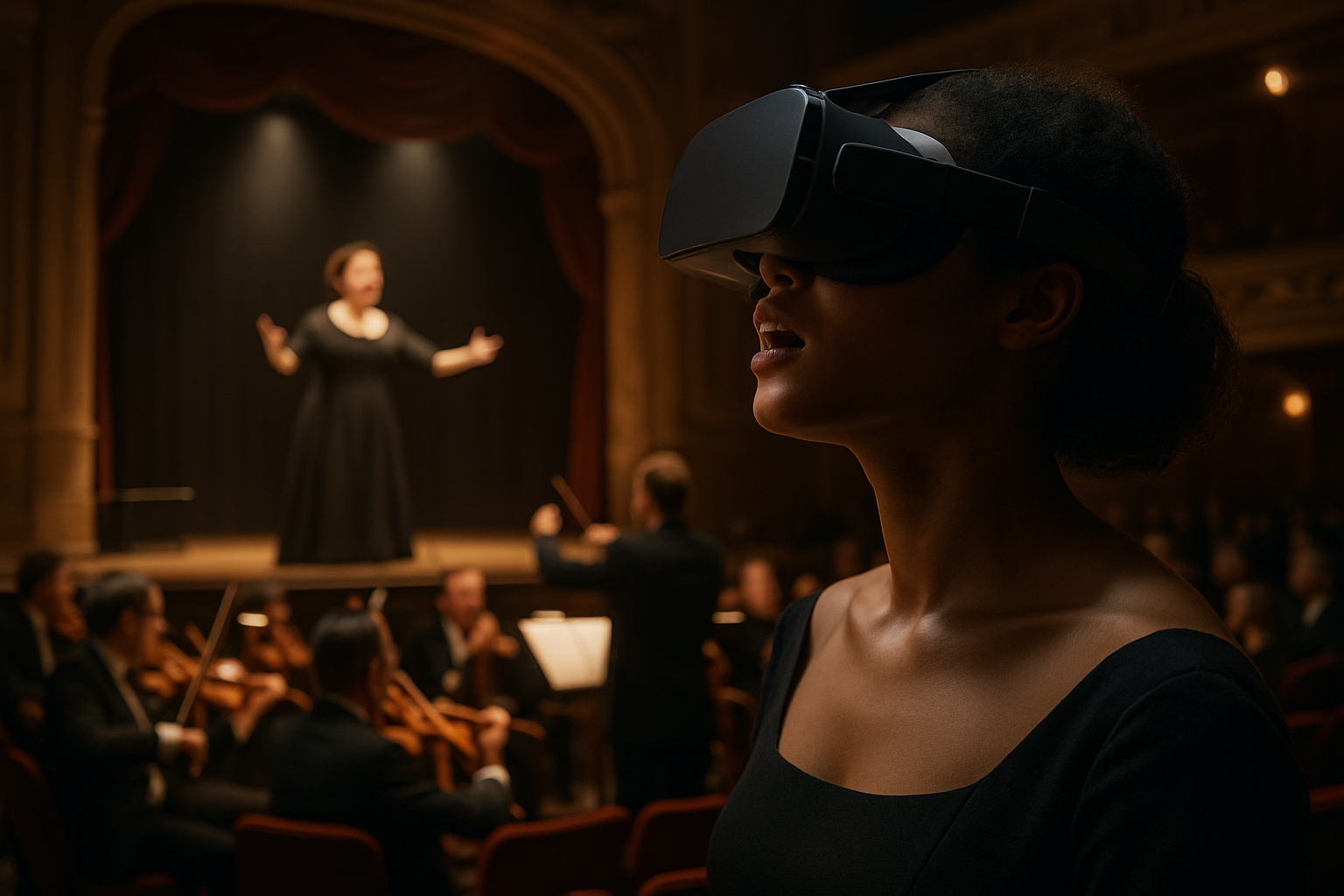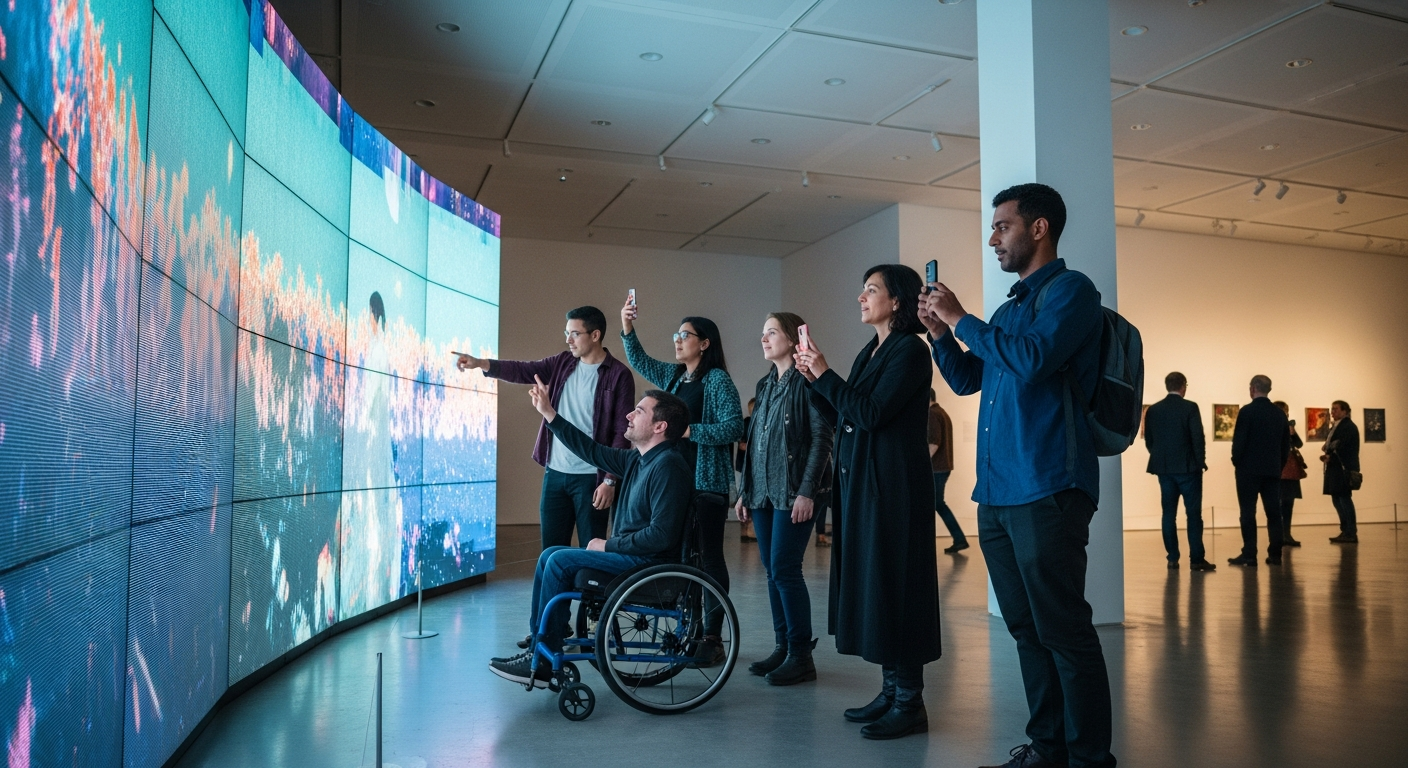Virtual Reality Opera: Redefining the Boundaries of Musical Performance
The fusion of cutting-edge technology and classical art forms has given birth to a revolutionary new medium: virtual reality opera. This groundbreaking artistic endeavor merges the timeless beauty of operatic performance with the immersive capabilities of virtual reality, creating an unprecedented sensory experience for audiences worldwide. As traditional opera houses grapple with declining attendance and an aging demographic, VR opera emerges as a potential savior, breathing new life into this centuries-old art form and attracting a new generation of tech-savvy music lovers.

Pushing the Boundaries of Artistic Expression
Unlike traditional opera, VR opera is not constrained by the physical limitations of a stage. Composers and directors can create fantastical worlds that shift and transform in real-time, responding to the music and the performers’ actions. This newfound freedom has led to a renaissance in operatic storytelling, with productions that seamlessly blend reality and fantasy in ways previously unimaginable.
The Technical Challenges of VR Opera
Creating a successful VR opera requires a delicate balance of artistic vision and technical expertise. Developers must overcome numerous challenges, including real-time motion capture for performers, spatial audio design, and the creation of visually stunning yet computationally efficient virtual environments. Moreover, ensuring a seamless and comfortable experience for audiences wearing VR headsets for extended periods presents its own set of unique hurdles.
The Impact on Performers and Audiences
For opera singers and musicians, VR productions offer exciting new opportunities for artistic expression. Performers must adapt to the unique demands of acting and singing in a virtual space, often interacting with digital elements that are invisible during the actual performance. Audiences, in turn, are no longer passive observers but active participants in the operatic experience, free to explore the virtual world and even influence the course of the story in some productions.
The Future of Opera in the Digital Age
As VR technology continues to evolve, the potential for virtual reality opera seems limitless. Some visionaries predict a future where audiences from around the world can gather in shared virtual spaces to experience live performances together, regardless of their physical location. Others see VR opera as a stepping stone to even more immersive forms of musical storytelling, incorporating elements of augmented reality and artificial intelligence.
Preserving Tradition in a Digital Realm
While VR opera represents a bold step into the future, many productions strive to maintain a connection to the art form’s rich history. Some virtual operas recreate famous historical venues in meticulous detail, allowing audiences to experience performances as they might have been staged centuries ago. Others reimagine classic works in fantastical new settings, breathing fresh life into beloved stories.
The Economic Implications of VR Opera
For opera companies struggling with the high costs of traditional productions, VR offers a potentially more sustainable model. While initial development costs can be significant, virtual productions can be easily distributed to a global audience without the need for expensive sets, costumes, or venue rentals. This democratization of access could help opera reach new audiences and secure its financial future in the digital age.
Critical Reception and Artistic Debate
As with any revolutionary art form, VR opera has sparked intense debate within the classical music community. Traditionalists argue that the technology detracts from the purity of live vocal performance, while proponents celebrate its potential to revitalize and reinvent the genre. Critics and audiences alike continue to grapple with questions of authenticity, artistry, and the very nature of operatic experience in the virtual realm.
Educational Opportunities and Outreach
Beyond its artistic merits, VR opera presents exciting possibilities for music education and cultural outreach. Virtual productions can offer behind-the-scenes access to rehearsals, interactive tutorials on operatic techniques, and immersive history lessons on the genre’s development. This accessibility could play a crucial role in cultivating the next generation of opera enthusiasts and performers.
The Intersection of Art and Technology
At its core, virtual reality opera represents a fascinating convergence of art and technology, challenging our perceptions of what constitutes a live performance. As VR hardware becomes more affordable and widespread, we may be witnessing the birth of an entirely new art form—one that honors the traditions of classical opera while embracing the limitless possibilities of the digital age. Whether this bold experiment will ultimately redefine the operatic landscape or remain a niche curiosity remains to be seen, but its impact on the world of musical performance is undeniable.






